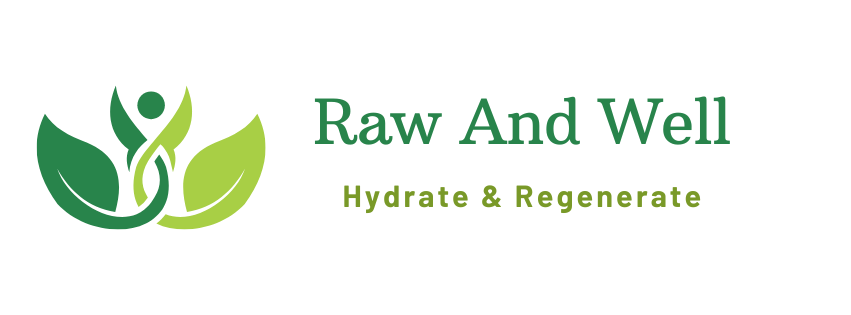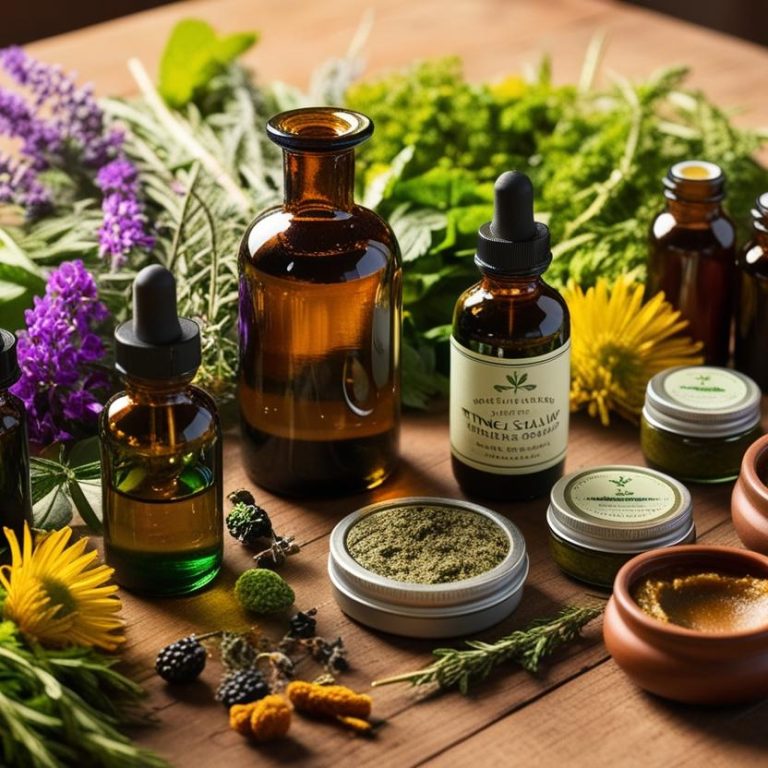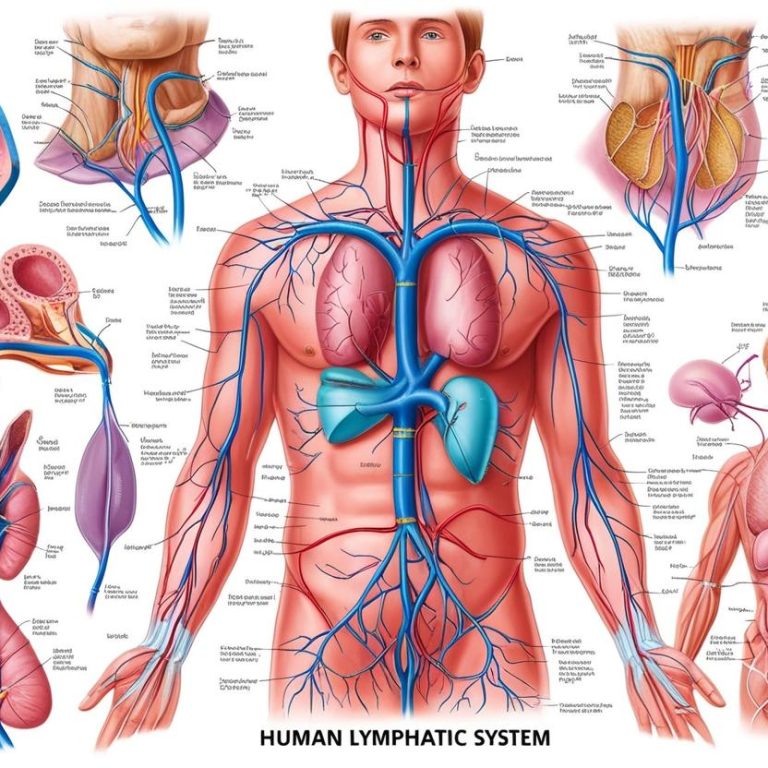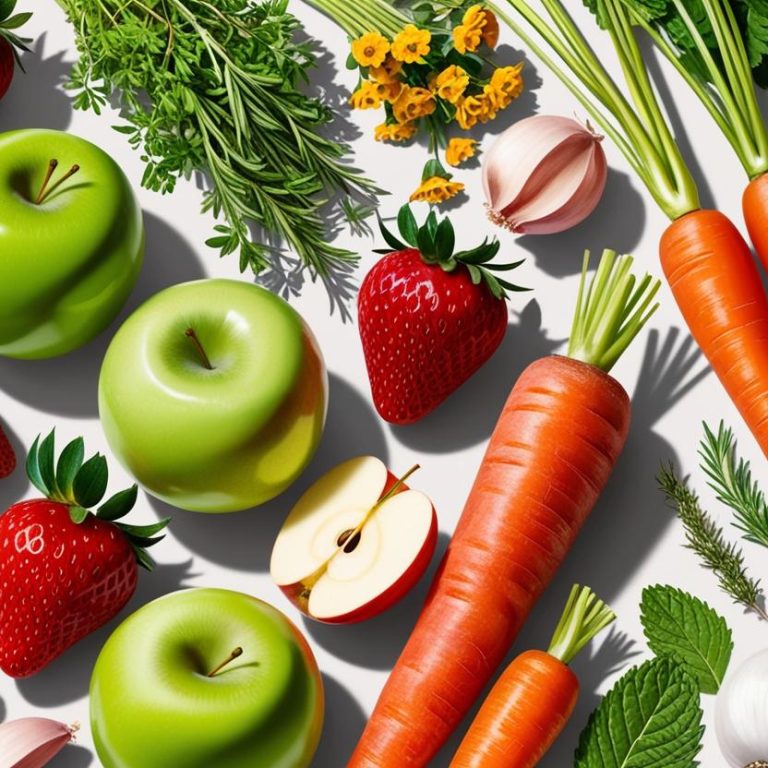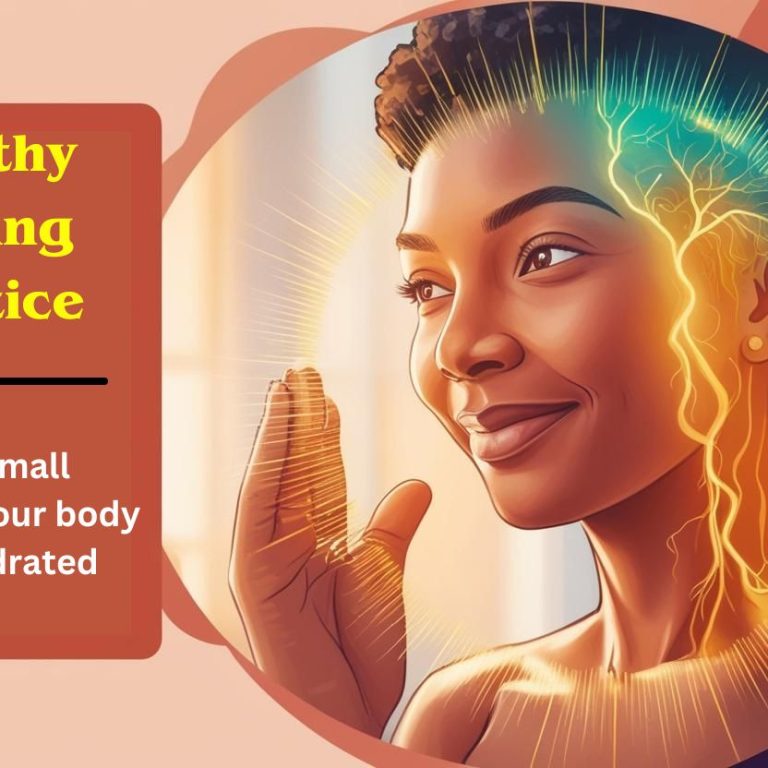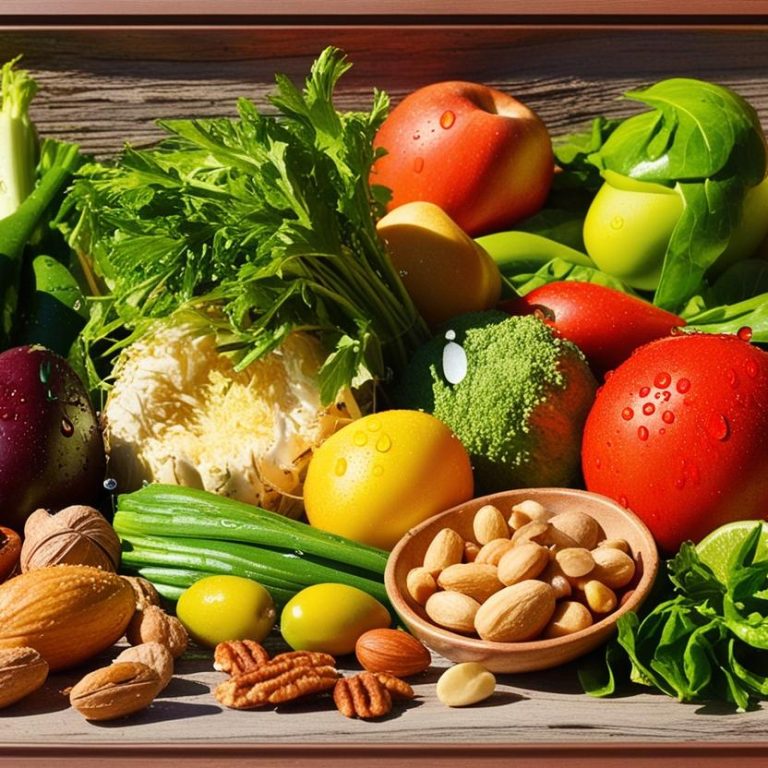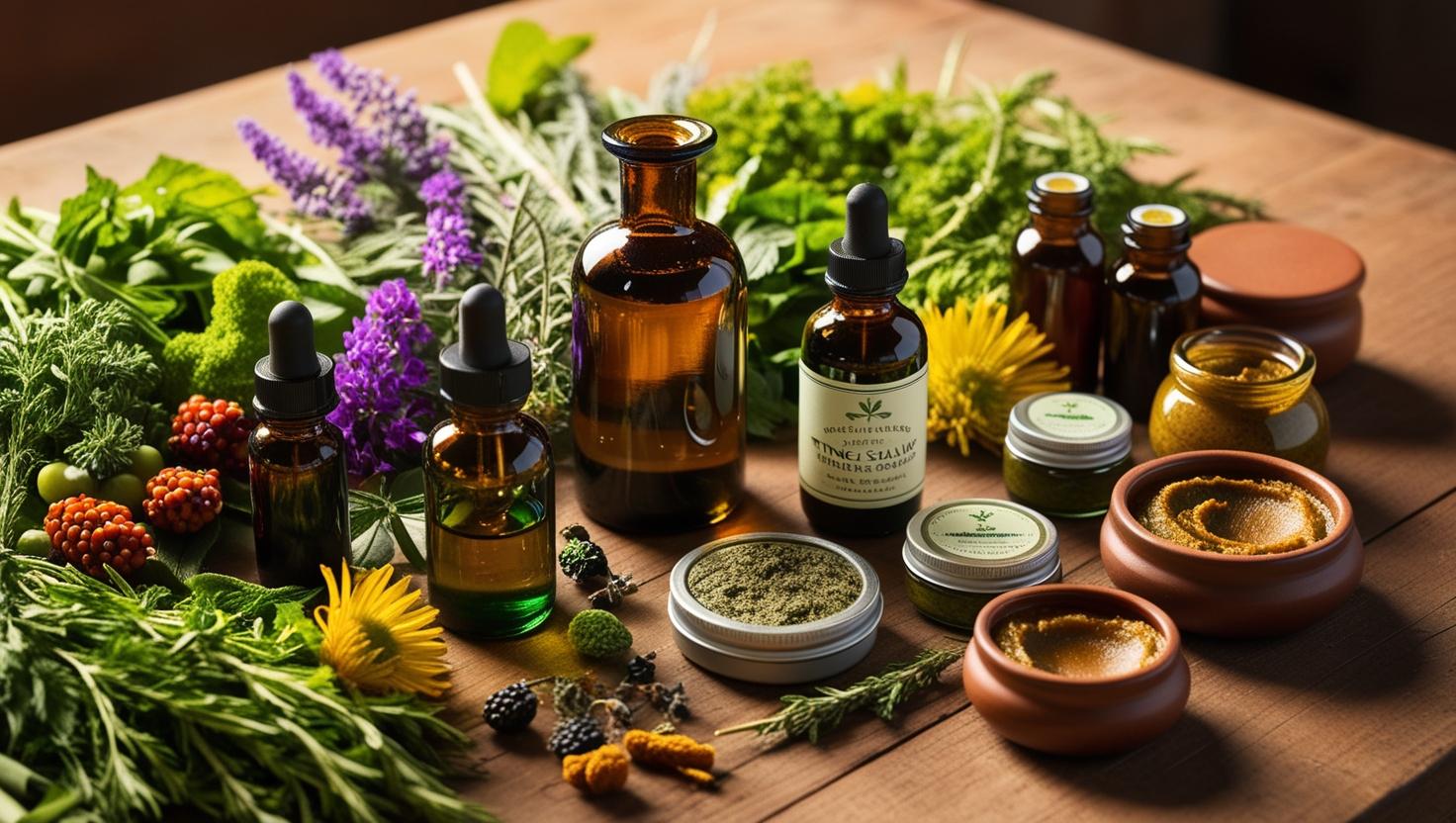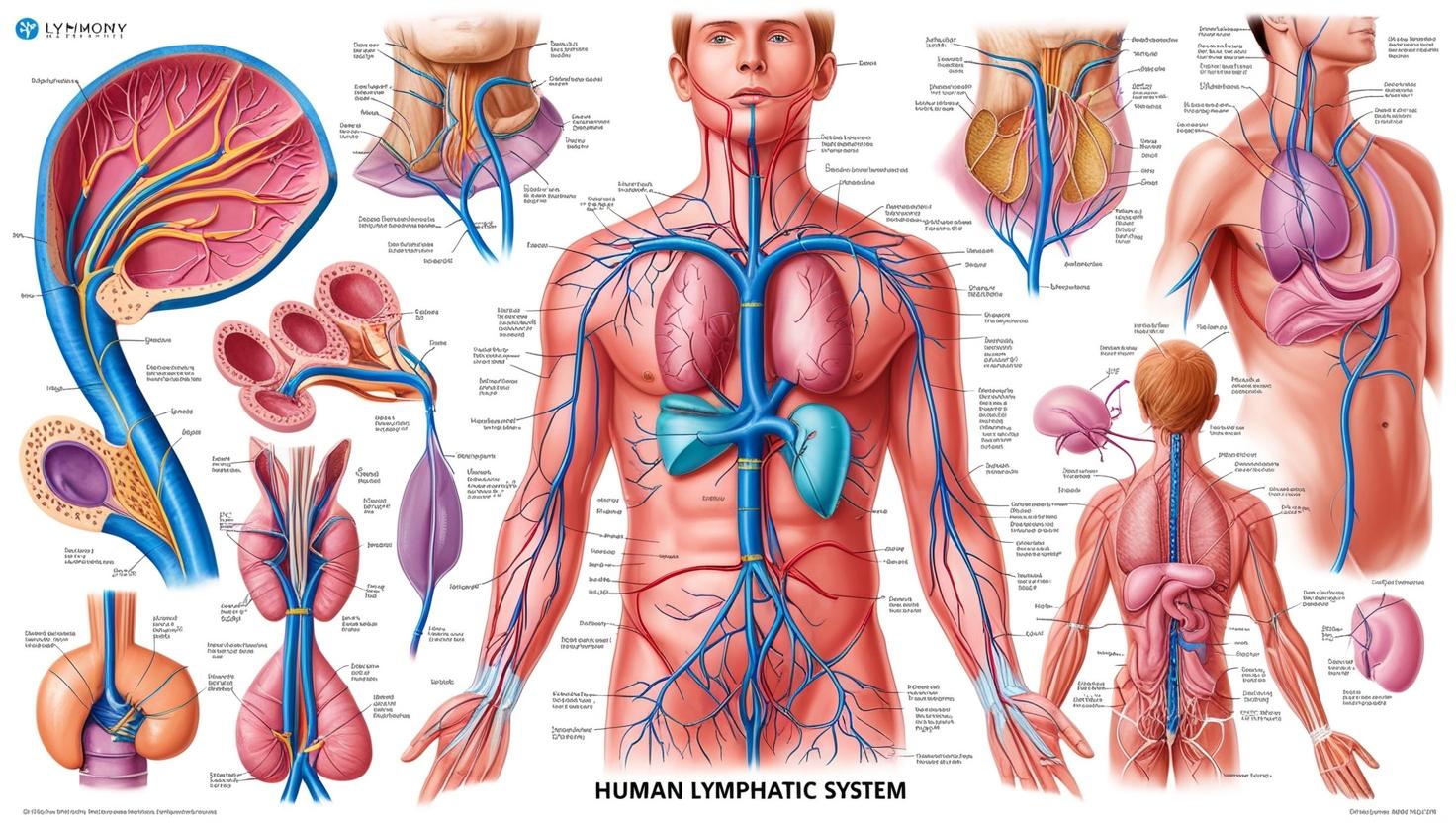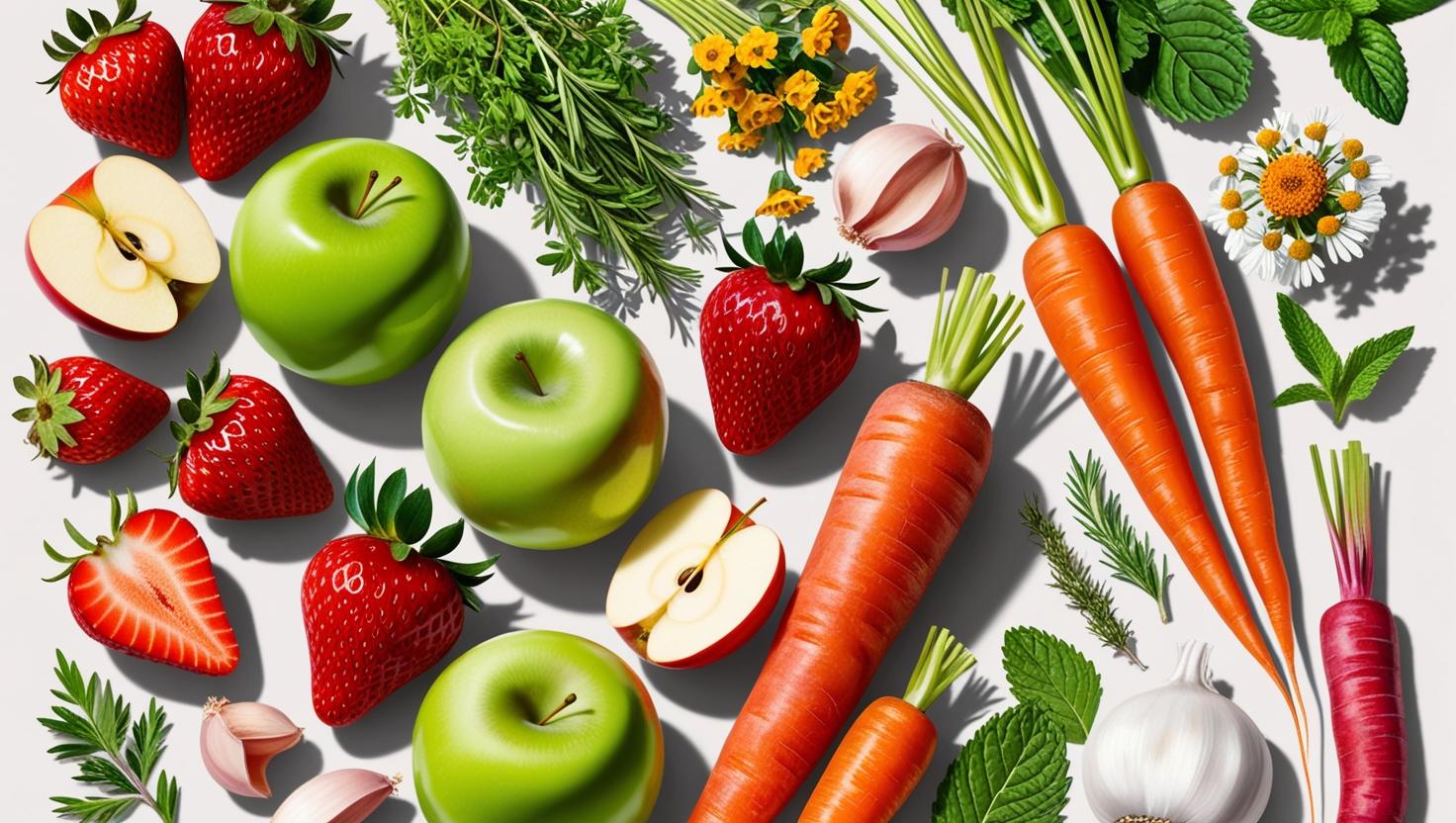Introduction to Herbal Remedies and the Growing Interest in Holistic HealthIn recent years, there has been a significant …
Archives
Hey there! Let's chat about something super important but often overlooked: our lymphatic system. Think of it as …
Digestive health plays a vital role in overall well-being, yet it’s often one of the most overlooked aspects …
Fasting is becoming a buzzword in the world of health and wellness. From celebrities to health professionals, everyone …
Maintaining a healthy immune system plays a crucial role in staying fit and resilient. Your immune system is …
Welcome to the Raw Food LifestyleIn recent years, the raw food lifestyle has captured the attention of health …
Are you ready to feel revitalized, rejuvenated, and full of energy? If you're a detox beginner, health enthusiast, …
Modern challenges, whether professional stress, emotional imbalance, or the constant hustle of daily life, have made mental and …
Stress is no stranger in our modern-day routines. Long hours, tight deadlines, and daily responsibilities can leave even …
The body is an amazing machine. It naturally detoxifies on a daily basis to help support your health …
Featured Posts
Discover Nature’s Medicine Cabinet with Herbal Remedies
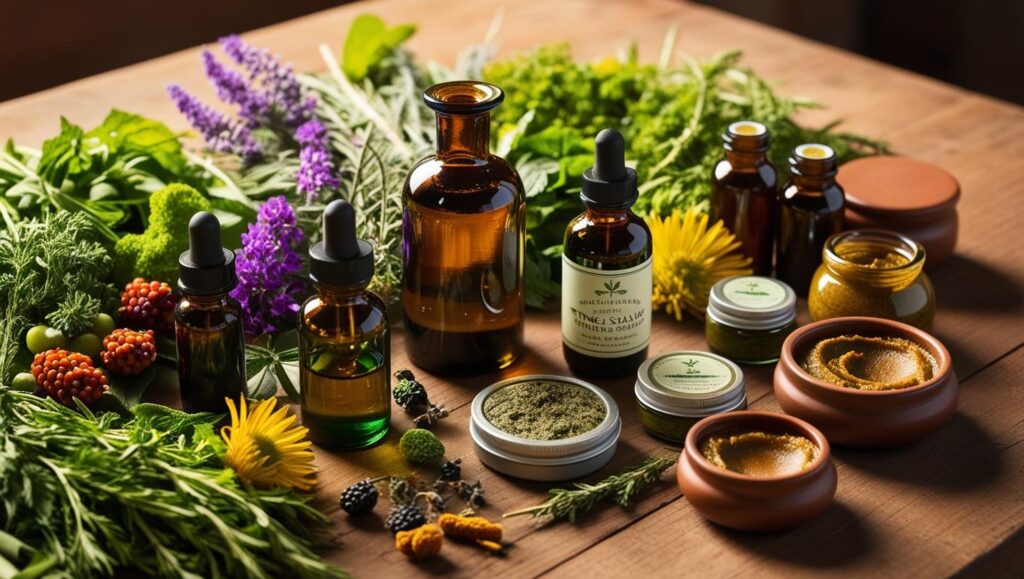
Introduction to Herbal Remedies and the Growing Interest in Holistic Health
In recent years, there has been a significant shift towards holistic health practices, with herbal remedies leading the charge. These natural solutions offer an alternative to conventional medicine, appealing to those seeking a more organic approach to health and wellness. This blog post is designed to introduce you to the world of herbal remedies through the lens of Dr. Robert Morse, a respected figure in the realm of natural healing. We’ll explore fundamental concepts, practical applications, and real-life success stories that highlight the power of nature’s medicine cabinet.
Understanding the Principles of Dr. Robert Morse in Herbal Remedies
Dr. Robert Morse is renowned for his work in the field of natural health, particularly in the use of herbal remedies. His principles are rooted in the belief that the body has an innate ability to heal itself when provided with the right tools. According to Dr. Morse, herbs are nature’s way of supporting and enhancing our body’s natural healing processes.
His approach emphasizes detoxification and cellular regeneration as the foundation for achieving optimal health. By focusing on the lymphatic system, kidneys, and adrenal glands, Dr. Morse believes we can eliminate toxins and rejuvenate our bodies. His methodology advocates for the use of specific herbs that target these areas, promoting balance and vitality.
Dr. Morse’s principles are not just about treating symptoms but addressing the root cause of health issues. This holistic approach aims to restore harmony within the body, making herbal remedies an integral part of a wellness routine for many individuals.
Exploring the Basics: Introduction to the Top Herbal Remedies Recommended by Dr. Morse
Dr. Morse recommends several herbal remedies, each with its unique properties and benefits. Let’s take a closer look at some of the top herbs he advocates for:
- Burdock Root – Known for its detoxifying properties, burdock root supports liver health and helps purify the blood. It’s often used to promote healthy skin and boost the immune system.
- Red Clover – This herb is celebrated for its ability to cleanse the bloodstream and support the lymphatic system. Red clover is also rich in antioxidants, which can help protect the body from oxidative stress.
- Milk Thistle – Milk thistle is widely recognized for its liver-protective qualities. It aids in liver regeneration and detoxification, making it a staple in many detox programs.
These herbs, along with others like dandelion, nettle, and peppermint, form the backbone of Dr. Morse’s herbal repertoire. They are selected for their ability to work synergistically with the body’s natural processes, promoting healing and overall well-being.
How to Use Herbal Remedies Safely and Effectively: Dosage, Preparation, and Administration
Safety and effectiveness are paramount when incorporating herbal remedies into your wellness routine. Here are some guidelines to ensure you get the most out of these natural treasures:
Dosage – The correct dosage is crucial for maximizing the benefits of herbal remedies. It’s important to follow recommended guidelines or consult with a healthcare professional to avoid overuse or potential adverse effects.
Preparation – Herbs can be prepared in various forms, including teas, tinctures, capsules, and poultices. Each form has its own set of instructions for preparation, so it’s essential to understand how best to utilize the specific herb.
Administration – The method of administration can impact the effectiveness of the herb. For instance, teas may provide immediate effects, while capsules could offer prolonged benefits. Understanding the nuances of each form ensures you’re using the remedy to its fullest potential.
By adhering to these principles, you can safely and effectively incorporate herbal remedies into your health regimen, reaping their full range of benefits.
Success Stories: Real-Life Experiences of People Who Benefited from Herbal Remedies
The real power of herbal remedies is best illustrated through the success stories of individuals who have experienced their benefits firsthand. Here are a few inspiring accounts:
Sarah’s Journey to Clear Skin – After years of struggling with acne, Sarah turned to herbal remedies as a last resort. By incorporating burdock root and red clover into her daily routine, she noticed a significant improvement in her skin’s clarity and texture within weeks.
John’s Digestive Relief – Suffering from chronic digestive issues, John found solace in peppermint and ginger teas. These herbs helped soothe his stomach and alleviate discomfort, allowing him to enjoy meals without fear of indigestion.
Emily’s Energy Boost – Feeling perpetually fatigued, Emily began using adaptogenic herbs like ashwagandha and rhodiola. These powerful plants helped balance her adrenal function and increased her energy levels, transforming her daily life.
These stories highlight the potential of herbal remedies to bring about positive changes in various aspects of health and well-being.
Integrating Herbal Remedies into Your Daily Routine: Practical Tips and Advice
Incorporating herbal remedies into your daily routine can be simple and rewarding. Here are some practical tips to get you started:
Start Small – Begin with one or two herbs that align with your health goals. Gradually introduce more as you become comfortable with their effects.
Consistency is Key – For herbal remedies to be effective, consistency is crucial. Make them a regular part of your routine, whether it’s a morning tea or a nightly tincture.
Stay Informed – Continuously educate yourself about the herbs you use. Understanding their properties and interactions ensures you’re making informed decisions about your health.
By following these tips, you can seamlessly integrate herbal remedies into your lifestyle, maximizing their potential benefits.
Conclusion
Herbal remedies offer a natural path to health and wellness, drawing on the wisdom of time-tested traditions. Dr. Robert Morse’s principles provide a comprehensive framework for using herbs to support the body’s innate healing abilities. By incorporating these remedies into your daily routine, you can experience the profound impact of nature’s medicine cabinet.
As you explore the world of herbal remedies, remember the importance of education and seeking professional guidance. Share your experiences with others and continue learning about this holistic approach to health. Together, we can unlock the potential of nature’s healing gifts and empower ourselves to live healthier, more vibrant lives.
How Stress Affects Your Lymphatic System
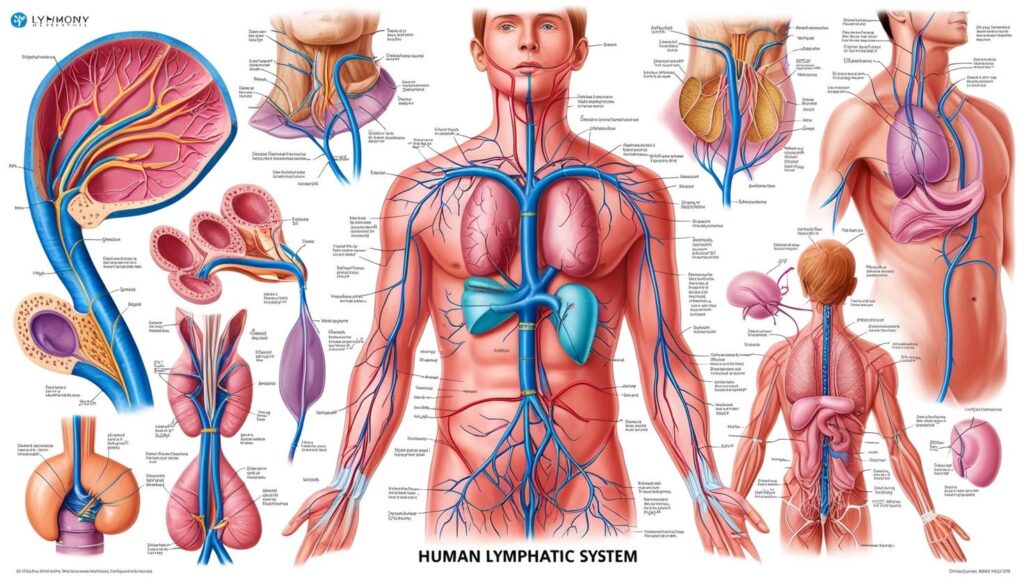
Hey there! Let’s chat about something super important but often overlooked: our lymphatic system. Think of it as your body’s natural cleaning crew, helping to sweep away waste and those pesky intruders like bacteria and viruses. It’s also where your immune system sets up shop, producing white blood cells and antibodies to keep you healthy.
Now, when everything’s running smoothly, the lymphatic system also carries nutrients around your body. But if it gets a bit backed up, or “congested,” it can’t do its job properly, and that can lead to all sorts of health issues. One big culprit for this congestion? Stress!
Stress triggers something called the “fight-or-flight” response, powered by the sympathetic nervous system. It’s like your body’s emergency mode, speeding up your heart, tightening blood vessels, and slowing down digestion. While this is great if you’re facing a lion, it’s not so great if it’s just everyday stress. These changes can actually slow down your lymph flow, making it harder for your body to get rid of waste.
Plus, stress cranks up production of cortisol, a hormone that can suppress your immune system, leaving you more vulnerable to infections. Over time, chronic stress can lead to all sorts of issues like allergies, asthma, fatigue, and even frequent colds.
But don’t worry, there are plenty of ways to support your lymphatic system and manage stress:
- Eat Well: Fill up on fruits and veggies. They help reduce inflammation, keeping everything flowing smoothly.
- Stay Active: Regular exercise is like giving your lymphatic system a gentle nudge to keep moving.
- Get Your Zzz’s: Lack of sleep can boost stress hormones, so aim for a good night’s rest.
- Stress Less: Try meditation, yoga, or just a walk in the park to help manage stress.
- Herbs and Helpers: Some herbs can aid your lymphatic system, but always check with a healthcare pro first.
- Dry Brushing: This is like a mini massage for your skin, stimulating lymph flow.
- Sweat it Out: Saunas and steam baths help your body release toxins, easing the load on your lymphatic system.
Remember, this is just a starting point. If you’re looking to dive deeper into lymphatic health, chatting with a healthcare professional can provide more personalized advice. Stay healthy and stress-free!
How Stress Affects Your Lymphatic System
The lymphatic system is a critical part of the body’s immune and eliminative processes. It acts like a sewer system, removing cellular waste, excess fat-soluble compounds from the gastrointestinal tract, and serving as the home of the immune system. It creates white blood cells and antibodies and serves as the battleground for immune cells to fight pathogens like bacteria, yeasts, viruses, and other unwanted intruders.
The lymphatic system is also responsible for carrying nutrients to various parts of the body. However, when the lymphatic system becomes congested, it can’t function properly, leading to a variety of health problems.
One of the major factors that can contribute to lymphatic congestion is stress.
- Stress causes the sympathetic nervous system to dominate. The sympathetic nervous system is responsible for the “fight-or-flight” response, which prepares the body to deal with danger.
- This response causes a number of physiological changes, including increased heart rate, constricted blood vessels, and decreased digestion.
- These changes can also affect the lymphatic system, slowing down lymph flow and making it more difficult for the body to remove waste products.
- Additionally, stress can lead to the production of hormones like cortisol, which can suppress the immune system and make the body more susceptible to infection.
Long-term stress can have a significant impact on the lymphatic system, leading to chronic health problems. Some of the conditions that have been linked to chronic stress and lymphatic congestion include:
- Allergies
- Asthma
- Bronchitis
- Chronic fatigue syndrome
- Frequent colds and flu
- Skin conditions
- Tumors
It’s important to note that the sources state that the medical community doesn’t fully understand the lymphatic system and its role in disease. The sources present an alternative viewpoint, suggesting that many conditions that are typically treated with medication could be addressed by supporting the lymphatic system and promoting detoxification. The sources also emphasize the importance of diet in maintaining a healthy lymphatic system.
Tips for Reducing Stress and Supporting Your Lymphatic System:
- Eat a healthy diet: A diet rich in fruits and vegetables can help to alkalize the body and reduce inflammation, which can improve lymph flow.
- Exercise regularly: Exercise helps to stimulate the lymphatic system and improve circulation.
- Get enough sleep: When you’re sleep-deprived, your body produces more of the stress hormone cortisol.
- Manage stress: Find healthy ways to manage stress, such as meditation, yoga, or spending time in nature.
- Consider using herbs: The sources recommend a variety of herbs that can support the lymphatic system and promote detoxification. However, it’s important to consult with a qualified healthcare professional before using any herbs, especially if you have any underlying health conditions.
- Dry skin brushing: Dry skin brushing can help to stimulate the lymphatic system and remove toxins from the skin.
- Saunas and steam baths: Sweating helps to eliminate toxins from the body, which can reduce the burden on the lymphatic system.
How to Combine Raw Foods and Herbal Remedies for Digestive Ease
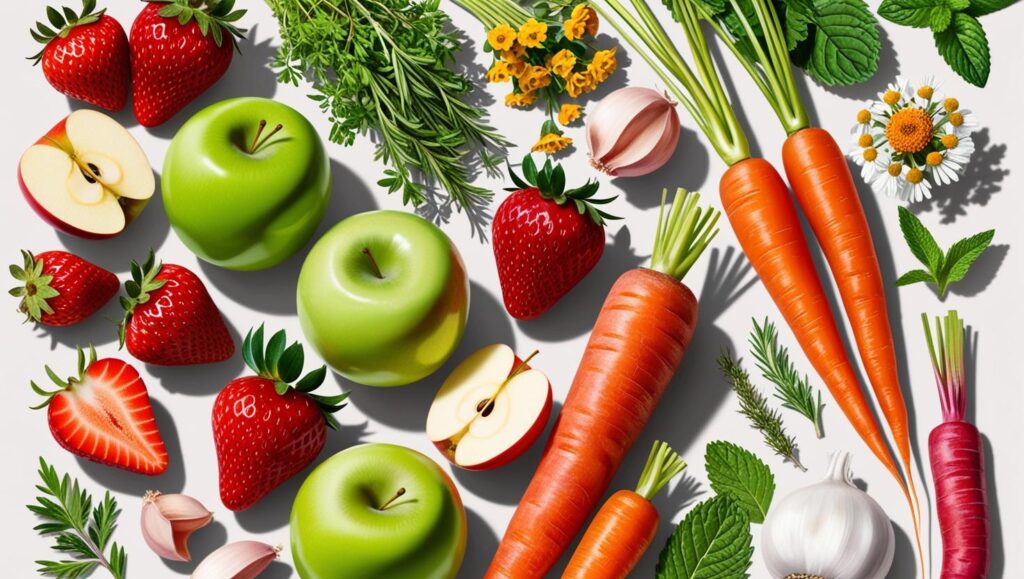
Digestive health plays a vital role in overall well-being, yet it’s often one of the most overlooked aspects of our health. For years, natural solutions like raw food diets and herbal remedies have been celebrated for their ability to improve digestion and support the body’s innate healing capabilities. By combining the best of these two approaches, you can take a powerful step toward achieving lasting digestive ease.
In this blog, we’ll explore how raw foods and herbal remedies work individually to support digestion and discover how they can be harmoniously integrated for maximum benefits. You’ll also find practical tips and recipes to get started. Whether you’re a seasoned health enthusiast or simply curious about natural medicine, this guide will empower you to nourish your digestion naturally.
The Importance of Digestive Health
Your digestive system is the foundation of your overall health. It’s responsible for breaking down the food you eat into nutrients that your body can absorb, delivering essential fuel to every cell. Yet, when digestion is compromised, it can lead to more than just stomach discomfort. Digestive issues such as bloating, constipation, and acid reflux can interfere with daily life and even contribute to bigger health problems like fatigue, skin issues, and lowered immunity.
Maintaining optimal digestive health isn’t just about having a happy gut—it’s about enhancing your entire well-being. Addressing digestion holistically can pave the way for feeling lighter, more energetic, and healthier overall, and that’s where raw foods and herbal remedies step in.
Raw Foods for Digestive Ease
Why Raw Foods Support Digestion
Raw foods are often touted for their high nutritional value and ease of digestion. These foods are packed with enzymes, which are naturally occurring compounds that help break down food during digestion. By consuming raw foods, you can preserve these enzymes and give your digestive system a much-needed break, reducing the workload on your stomach and intestines.
Additionally, raw fruits, vegetables, and seeds are high in fiber, which helps regulate bowel movements and maintain a healthy gut microbiome.
The Best Raw Foods for Digestion
Not all raw foods are created equal when it comes to digestive health. Here’s a list of the best ones to include in your diet:
- Papaya: Contains papain, an enzyme that helps break down proteins.
- Pineapple: Rich in bromelain, known for easing digestion and reducing bloating.
- Cucumber: High in water content, helping to keep your digestive tract hydrated.
- Fermented Raw Vegetables (e.g., sauerkraut, kimchi): Packed with probiotics that support gut health.
- Leafy Greens (e.g., spinach, kale): Provide fiber and essential nutrients for smooth digestion.
- Sprouted Seeds and Nuts: Easier to digest and offer healthy fats.
By incorporating these raw foods into your meals, you can set the stage for smoother, more efficient digestion.
Herbal Remedies to Support Digestion
A Natural Medicine Tradition
Herbal remedies have been used for centuries to support digestive health. Ancient healing systems like Ayurveda, Traditional Chinese Medicine, and Western herbalism all emphasize the power of plants to soothe the stomach, regulate digestion, and alleviate discomfort. By targeting specific digestive concerns, these herbs become invaluable allies in your health toolkit.
The Best Herbs for Digestive Health
Here’s a list of tried-and-true digestive herbs and their benefits:
- Ginger: Reduces nausea and stimulates digestive enzymes.
- Peppermint: Eases bloating and helps soothe an upset stomach.
- Chamomile: Relaxes the digestive muscles and alleviates stress-based digestion issues.
- Fennel: Known for reducing gas and calming the stomach.
- Turmeric: Supports anti-inflammatory benefits for digestive irritation.
- Slippery Elm: Coats the stomach lining, providing relief from acid reflux and indigestion.
These herbs can be enjoyed in teas, tinctures, or even added to recipes.
How to Combine Raw Foods and Herbal Remedies
Pairing raw foods with herbal remedies is a simple yet effective way to nourish your digestion. Here are some practical tips to incorporate both into your daily life, plus a delicious recipe to kick things off.
Tips for Combining Raw Foods and Herbs
- Herbal Infused Smoothies:
Blend raw fruits and vegetables with herbal teas like chamomile or peppermint for a refreshing digestion-boosting drink.
- Salad Dressings with Herbal Add-Ins:
Add powdered ginger or turmeric to your salad dressings for extra digestive support.
- Raw Snacks with Herbal Accents:
Pair raw cucumber slices with a fennel seed dip for a flavorful, gut-friendly snack.
Recipe: Ginger-Infused Raw Veggie Bowl
Ingredients:
- 1 cup spinach
- ½ cup shredded carrots
- ½ cup julienned cucumbers
- ½ avocado
- 1 tbsp grated fresh ginger
- 2 tsp sesame oil
- 2 tsp lemon juice
- Salt and pepper to taste
Instructions:
- Combine spinach, carrots, cucumbers, and avocado in a bowl.
- Mix the ginger, sesame oil, and lemon juice to create a dressing.
- Drizzle the dressing over the veggies and toss gently.
- Add salt and pepper to taste before serving.
This simple recipe combines the gut-healing powers of raw vegetables and ginger for a satisfying meal.
Lifestyle Tips for Overall Digestive Wellness
Pairing raw foods and herbal remedies is only part of the picture. To truly optimize your digestive health, consider these lifestyle tips:
- Stay Hydrated:
Aim to drink at least 8 cups of water daily to keep digestion running smoothly.
- Move Your Body:
Regular exercise promotes healthy bowel movements and reduces bloating.
- Practice Mindful Eating:
Chew your food slowly to help your body break it down more effectively.
- Manage Stress:
High stress levels negatively impact digestion. Try yoga, meditation, or other relaxation techniques.
Building these habits into your daily life will complement your raw food and herbal remedy efforts, leading to even better outcomes.
Take Control of Your Digestive Health Naturally
Whether you’re struggling with digestive issues or simply looking to feel your best, combining raw foods and herbal remedies is a powerful, natural solution. This approach not only eases digestive discomfort but also nourishes the body, mind, and soul.
Start small by incorporating a few of the raw foods and herbs we’ve mentioned into your weekly meals, or try out the ginger-infused veggie bowl recipe above. The more consistent you become, the more dramatic the benefits will be.
If you’re ready to take the next step in improving your digestive health, explore more of our resources or connect with a natural health expert today. Your gut will thank you!






